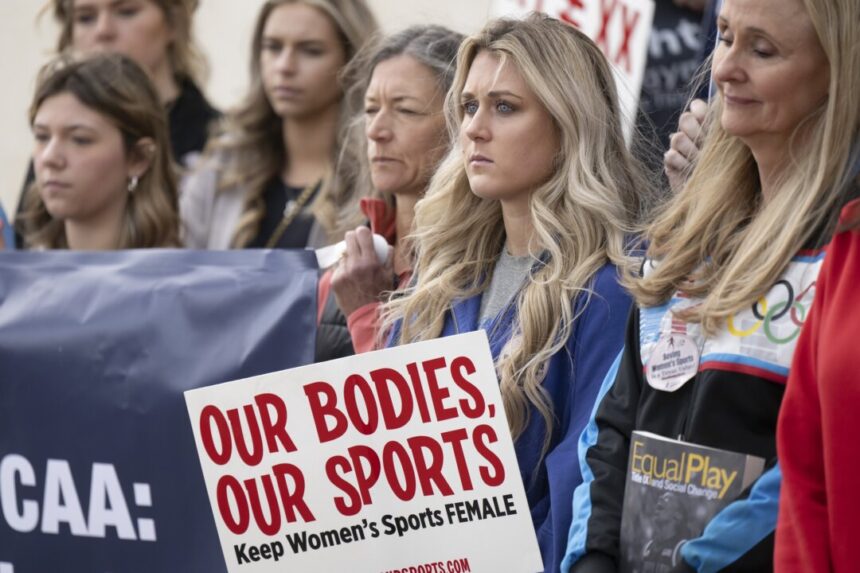The two major presidential candidates have differing views on transgender issues, including participation in sports and gender-related medical procedures for children. Former President Donald Trump and Vice President Kamala Harris are deeply divided on these issues, with Trump vowing to keep men out of women’s sports and denouncing gender-related medical procedures for children. Harris, on the other hand, has expressed support for transgender rights and access to medical care, including gender-related surgeries. These issues highlight a broader cultural and political divide among American voters. Mike DeWine, a fellow Republican, faced backlash for vetoing a state law banning transgender surgeries for minors and cross-sex sports competitions. However, lawmakers later overrode the veto, and the ban remains in effect after surviving court challenges.
In contrast, Trump is pushing for a federal law to prohibit “child sexual mutilation” in all 50 states. He opposes the Biden-Harris administration’s “gender affirming care” for minors and calls for terminating any health care provider involved in transitioning children from Medicare and Medicaid. Additionally, Trump wants to remove federal funding from school districts that suggest children can be “trapped in the wrong body.”
The Biden-Harris administration has implemented pro-transgender policies across multiple federal agencies, including changing Title IX to expand sex discrimination protection to students who identify as the opposite sex. This move allows males to participate in female sports and use female facilities.
The battle over Title IX has led to legal challenges in several states, with some judges temporarily blocking the changes. The U.S. Supreme Court has agreed to consider upholding a Tennessee law that bans gender-related medical procedures for minors.
Arkansas state Sen. Robin Lundstrum, a Republican, supports laws restricting transgender medical procedures for minors. She believes that children lack the capacity to consent to such treatments and is hopeful that Trump will help stop the attack on children and their families.
Nearly half of the states have passed laws restricting transgender medical procedures for minors, with some states enforcing these laws through legal action against doctors. Texas Attorney General Ken Paxton has filed lawsuits against doctors allegedly involved in prescribing hormones for minors with gender dysphoria. Paxton alleged that the doctor had treated close to twenty minors. The state is pursuing penalties against both doctors, who could potentially lose their medical licenses if found guilty of breaking the law.
In 2023, Texas enacted Senate Bill 14, which prohibits medical professionals from performing procedures that sterilize children, including reproductive organ removal, mastectomies, and the prescription of infertility-inducing drugs like puberty blockers and cross-sex hormones.
Contrastingly, fifteen blue states and the District of Columbia have implemented “transgender shield laws” to protect minors seeking to transition and the doctors assisting them from legal repercussions. These laws safeguard individuals who identify as transgender or the doctors providing them medical care in states where transitioning procedures are prohibited.
Some states, such as California, Colorado, and Maine, have passed comprehensive transgender protection legislation. For instance, California passed a law that prohibits school districts from informing parents about their child’s gender identity change without consent. Colorado introduced two laws to streamline the process for transgender individuals with felony convictions to change their legal names and require school districts to use students’ preferred names.
In addition to enacting a transgender shield law, Maine updated all printed forms to include a gender option designated as “X” by the end of 2024. The state also legalized access to gender-related hormones for 16- and 17-year-olds without parental consent in certain situations since 2023. Maine residents have been able to change their gender marker on driver’s licenses since 2018. Can you please rewrite this sentence?
Source link





